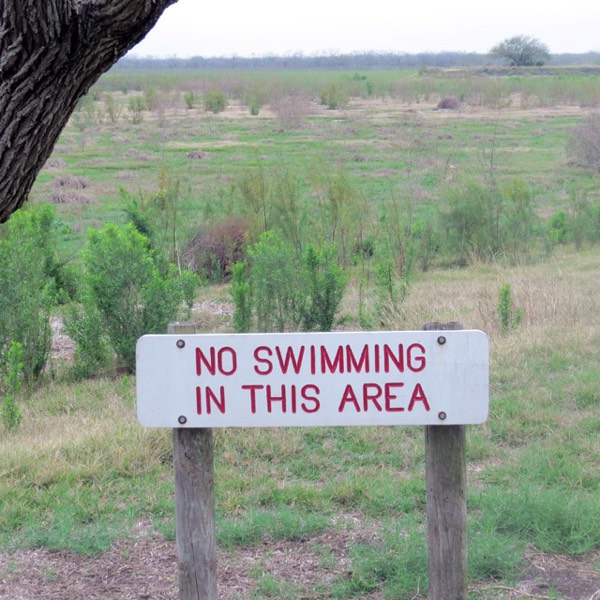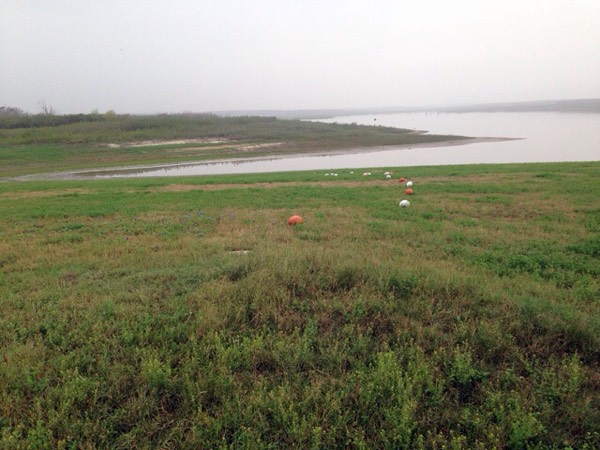Shortly after we arrived at Choke Canyon State Park, I drove over to check out the 65-acre lake where, six years ago, we had seen a rare [Northern Jacana](http://en.m.wikipedia.org/wiki/Northern_jacana). I recalled the dainty prancing of the bird on the floating vegetation, oblivious to the dozens of birders watching it. "Wouldn’t it be great to spot something unusual?" I mused as I drove.
What I found was nothing – nada! No bird, no lake The Texas drought had taken its toll.

Texas has been in drought conditions for about five years and Choke Canyon Reservoir, where we are camped, is only about a quarter full. It doesn’t seem to affect the fishing; the place is crawling with guys going after bass, blue catfish, and crappie. The ones I talk to say they’re doing great.
I visited another section of the park yesterday and found some mudflats where Least Sandpipers, Greater Yellowlegs, and a Great Egret were feeding. It took me a moment to realize, after I saw floats lying on the grass, that this was once the swimming area and as the water dropped, they just left the cables and floats in place.

We have several days of thunderstorms ahead with warnings of flash flooding. While the storms may hammer the campsite and especially all the spring break families here for the weekend in tents and pop-up campers, the system won’t make a dent in changing the reservoir level.
And I think it is time for the park staff to remove the sign to the "75-Acre Lake."
Here’s a New York Times article about some of the tensions arising from the drought.
Discover more from Vermont Birder
Subscribe to get the latest posts sent to your email.

Are you the nice gentleman that I chatted with near my tent? Me and my family were camping by the 75 acre lake (?). I’ve been looking for birder’s websites and foun this. What a coincidence!
Tomas
Tomas — I just found your comment in my spam folder and was delighted that you wrote. I enjoyed talking with you very much and seeing your lovely family. You were smart to head out, it got rather nasty that night. We are back home in Vermont, where it is still winter-like. Did you find a birder book to use with the kids? I like the new Sibley’s field guide but there are also a lot of good apps for smartphones. I use iBird and several others. We will likely be back in Texas next winter – it would be wonderful to see you all in a less hectic situation. That lake had quite a lot of water in it the next day from the rains, and lots of ducks.